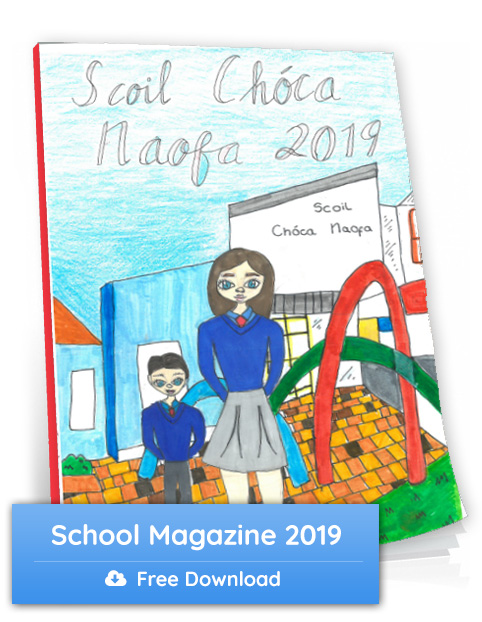The following is extracted in full from the PDF document provided by the National Parents Council. You can download and print out the document here or read online below:
[button link=”www.npc.ie/attachments/4da14503-0952-4611-9c8b-67cdd260b68e.PDF” size=”large” style=”download”]Print NPC Guide to Bullying[/button]
[hr]
NPC Guide to Bullying
Bullying is unwanted negative behaviour, verbal, psychological or physical conducted by an individual or group against another person (or persons) and which is repeated over time.
Department of Education and Skills, 2013
There are many different types of bullying that can occur, some of the more common types are:
- Name calling: persistent name-calling directed at the same individual(s), which hurts, insults or humiliates.
- Physical aggression: this behaviour includes pushing, shoving, punching, kicking, poking and tripping people. It may also take the form of severe physical assault. Personal property can be the focus of attention for the bully.
- Isolation/Exclusion and other relational bullying: this occurs where a certain person is deliberately isolated, excluded or ignored by some or the entire class group; relational bullying occurs when a person’s attempts to socialise and form relationships with peers are repeatedly rejected or undermined.
- Cyber-bullying: this type of bullying is increasingly common and is continuously evolving. It is bullying carried out through the use of information and communication technologies such as text, social network sites, e-mail, instant messaging (IM), apps, gaming sites, chat- rooms and other on line technology.
- Extortion: demands for money may be made, often accompanied by threats (sometimes carried out in the event of the targeted pupil not delivering on the demand). A pupil may also be forced into theft of property for delivery to another who is engaged in bullying behaviour.
- Intimidation: some bullying behaviour takes the form of intimidation; it may be based on the use of very aggressive language including body language.
Symptoms of Being Bullied
The following signs/symptoms may suggest that a child is being bullied:
- anxiety about travelling to and from school
- fear of going out to the yard at school break times
- anxiety about going to school each day
- loss of trust in friends
- loss of confidence
- unexplained or poorly explained physical injury
- deterioration in educational performance, loss of concentration and loss of enthusiasm and interest in school
- pattern of physical illnesses e.g. headaches, stomach aches
- unexplained changes either in mood or behaviour. These may be particularly noticeable before returning to school after weekends or more especially after the school holidays
- possessions missing or damaged.
Why Do Children Bully?
Children become bullies for many reasons, for example they may be:
- feeling insecure
- experiencing bullying themselves
- finding it difficult to fit in with other children
- feeling under pressure to succeed
- lacking boundaries and their behaviour may be going unchallenged at home.
Dealing with Bullying Behaviour in Schools
The school is in a unique position to promote attitudes and to shape patterns of behaviour which are positive and caring. The school should provide an environment where the child is physically safe and happy and where good relationships are fostered between pupils, teachers, parents and others involved in the running of the school.
Parents in particular have a responsibility to share in the task of equipping their children with a range of skills which will help them in their dealings with others.
What If My Child Tells Me They Are Being Bullied?
Talk to your child about bullying now! Empower your child with information and skills in an age appropriate way before they encounter bullying behaviour
- LISTEN to your child
- Ask questions but don’t interrogate
- Avoid treating your child as a victim
- Work with your child’s school where appropriate
- Help your child to build his/her confidence and self esteem in other areas. This can be supported through your child engaging in out of school activities, such as sports, music or art activities.
- Talk with your child’s teacher if the bullying is school related. A pupil or parent may bring a bullying concern to any teacher in the school. Individual teachers must take appropriate measures regarding reports of bullying behaviour in accordance with the school’s anti- bullying policy. All schools must have an “Anti – Bullying” policy. You should familiarise yourself with your school’s policy, so you know the steps to be taken if required.
NPC and NPC-PP receive calls each year from parents who feel their children are being bullied by a teacher or the Principal.
In the case of a complaint regarding a school staff member, you should, in the first instance raise the issue with the staff member in question and/or if necessary, with the Principal.
Where cases, relating to either a pupil or a teacher remain unresolved, the matter should be referred to the School’s Board of Management.
Procedures
The Department of Education and Skills have developed Anti-Bullying Procedures for primary and post primary schools. The procedures are published on the
Department’s website www.education.ie
How much bullying takes place in our schools and other youth environments depends on the role that committed adults play in their schools, their families, and their communities. Remember – Bullying is not a fact of life!
Helpline
NPC operates a Helpline which provides support and information for parents on how to deal with situations relating to the issue of bullying.
The Helpline is open from 10am – 5pm Monday – Wednesday and 10am – 4pm Thursday & Friday.
To contact the Helpline Tel: 01 887 4477 or email: helpline@npc.ie
National Parents Council Primary
12 Marlborough Court, Dublin 1
Tel: +353 1 887 4034 • Fax: +353 1 887 4489
Email: info@npc.ie | Information/Helpline: Tel: +353 1 887 4477
National Parents Council Post Primary
Unit 5, Glasnevin Business Centre, Ballyboggan Road, Dublin 11
Tel: +353 1 830 2740 / 830 2747 | Fax: +353 1 887 4489





